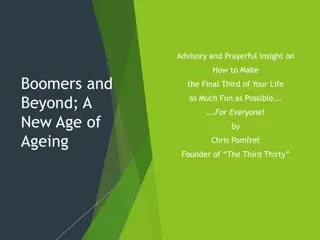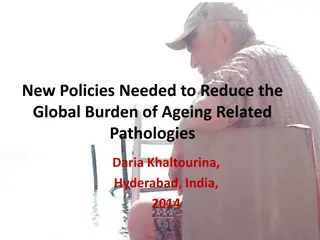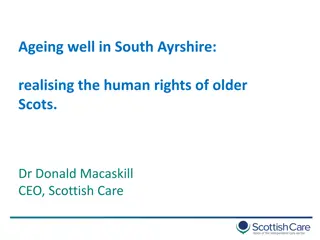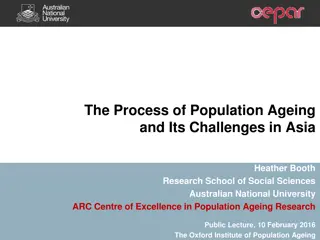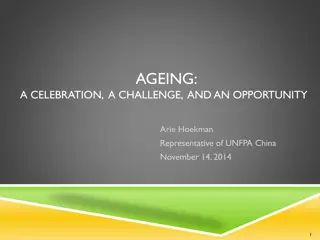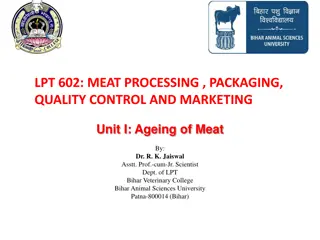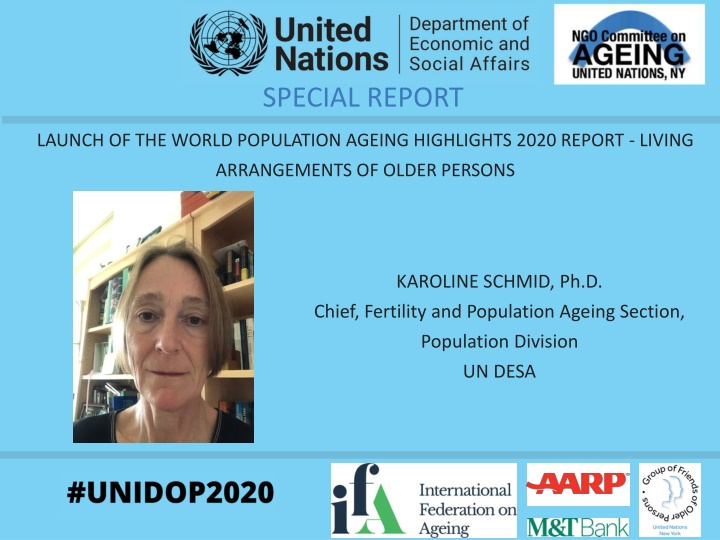
World Population Ageing 2020 Report: Key Findings and Implications
Discover key findings from the 2020 World Population Ageing report, exploring living arrangements of older persons and insights on COVID-19 risks. Understand the implications for policy-making to support older individuals and their families in alignment with the 2030 Sustainable Development Agenda.
Download Presentation

Please find below an Image/Link to download the presentation.
The content on the website is provided AS IS for your information and personal use only. It may not be sold, licensed, or shared on other websites without obtaining consent from the author. If you encounter any issues during the download, it is possible that the publisher has removed the file from their server.
You are allowed to download the files provided on this website for personal or commercial use, subject to the condition that they are used lawfully. All files are the property of their respective owners.
The content on the website is provided AS IS for your information and personal use only. It may not be sold, licensed, or shared on other websites without obtaining consent from the author.
E N D
Presentation Transcript
SPECIAL REPORT LAUNCH OF THE WORLD POPULATION AGEING HIGHLIGHTS 2020 REPORT - LIVING ARRANGEMENTS OF OLDER PERSONS KAROLINE SCHMID, Ph.D. Chief, Fertility and Population Ageing Section, Population Division UN DESA
This years World Population Ageing Highlights 2020 Living arrangements of older persons presents: Key findings from the United Nations household and living arrangements of older persons database 2019 ; Provisional insights into analysis of COVID-19 morbidity and mortality risks faced by older persons; Summary & policy recommendations; Annex tables for selected variables.
Key findings from the database: Slow changes from co-residence towards independent living ; but quick adjustments of living arrangements in times of crisis; Older persons in the more developed world live more often independently (alone or with spouse); whereas Older persons in the less developed world live with at least one child or with the extended family; Older women tend to: - Live more often alone; - Be poorer than older men; - Take more often care of grandchildren in skip-generation HHs.
First results analysis COVID-19 morbidity & mortality: Covid-19 death follows similar age patterns as general mortality with considerable variation across countries; Main determinant: extent to which countries have been able to control the spread of the disease; Frailty is a key factor: risk of death increases with age and comorbidities; Living arrangements matter for contracting COVID-19 and for dying from it: - Nursing home residents experience high risks of infection and mortality; - Living independently reduces the infection risk.
Summary and conclusion The composition of households and people s living arrangements have important consequences for the wellbeing of families and individuals, including older persons. Understanding and recognizing the importance of living arrangements of older persons for the socio-economic as well as the physical and mental well-being is critical to inform and guide policy-making in support of older persons and their families to implement the 2030 Sustainable Development Agenda.
THANK YOU The report can be accessed on the Population Division website: www.unpopulation.org




